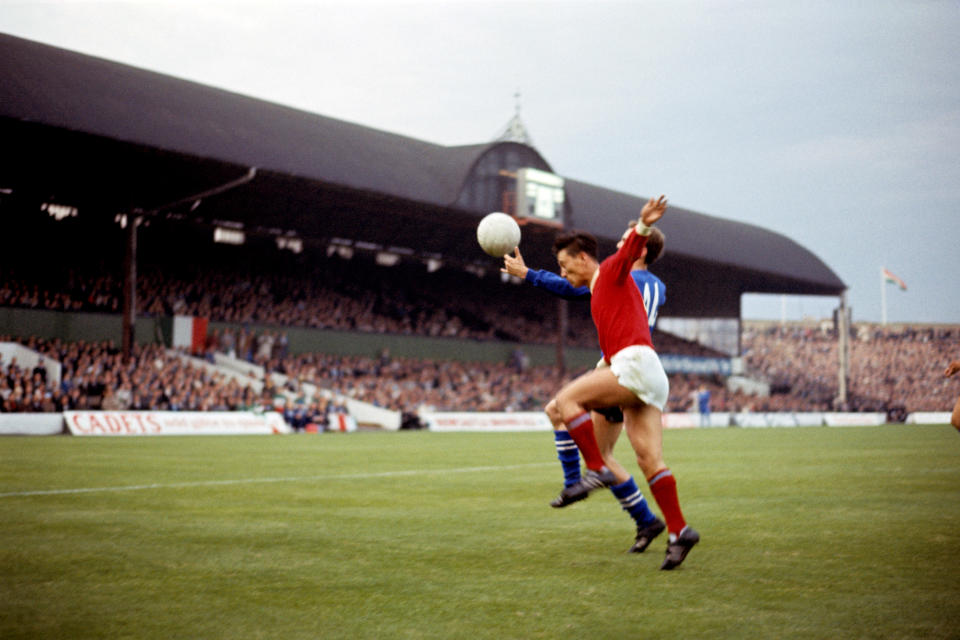World Cup shocks: Italy undone by North Korea on the biggest stage

Brazil are alone in winning the World Cup more often than Italy. When it comes to suffering shocks, however, the Azzurri may be out on their own. Defeats to Republic of Ireland in 1994, South Korea in 2002, Slovakia in 2010 and Costa Rica in 2014 fall firmly into the category of unwanted surprises. None overshadowed their ultimate embarrassment.
North Korea were a curiosity when they qualified for the 2010 World Cup. They were a complete mystery when they competed in 1966. For starters, Asian teams had scarcely been seen on the global stage. Indonesia, then known as the Dutch East Indies, played one game in 1938, losing 6-0. South Korea played two in 1954, going down 9-0 and 7-0. The continent’s aggregate score stood at 22-0.
But in 1966, North Korea qualified. In one respect, their passage to England was easy – one Asian team was supposed to be in a four-way play-off with three African sides, but the Africans withdrew en masse in protest at not being granted a guaranteed spot and they only had to beat Australia – but in another it was problematic.
England hosted the 1966 tournament and, technically, the United Kingdom did not recognise North Korea as a country. One Foreign Office memo advocated refusing them visas; Fifa suggested the World Cup would be taken elsewhere if one of the teams was not permitted to play.
READ MORE: World Cup 2018 – The team by team guide
READ MORE: World Cup 2018 – England draw ‘favourable’ group after dodging giants
READ MORE: Picture this: 11 players who have missed out on the World Cup
So North Korea took their place. They were billeted in Middlesbrough, where their three group games would be played, and had not booked accommodation for the latter stages. Few expected them to get there. They were in a group with the 1962 World Cup semi-finalists Chile, the 1964 European Championship runners-up Soviet Union and the two-time world champions Italy.
It is hard to overstate how strong Italian football was then. In the days when foreign footballers were very much in a minority, AC Milan won the European Cup in 1963 and Inter in both 1964 and 1965. Inter defender Giacinto Facchetti had been the runner-up in the Ballon d’Or in 1965; AC Milan playmaker Gianni Rivera, who came second in 1963, would win it in 1969 while Inter’s Sandro Mazzola would be placed behind only Johan Cruyff in 1971.
The Azzurri would win the 1968 European Championships and reach the 1970 World Cup final, losing to a Brazil team sometimes described as the best ever. Individually and collectively, they were an awesome proposition.
North Korea were not. They were complete unknowns from a mysterious, hardline Communist country few had visited. According to defender Rim Jung Son in the film The Game Of Their Lives, dictator Kim Il Sung told them,: “As representatives of the Asia/Africa region, as coloured people, I urge you to win one or two games.”
That seemed unlikely. Their opening 3-0 defeat to the Soviet Union surprised few; a short, slight side were overpowered by more physical opponents. Next up were Chile. Predictably, North Korea went behind. More surprisingly, they levelled in the 88th minute through captain Pak Seung-Zin. The goal was greeted rapturously. The Times declared these “whimsical Orientals” had been taken to Teessiders’ hearts.
Meanwhile, Italy started off by beating Chile, with Mazzola among the scorers. They lost to the Soviets, but still only needed a point from their final group game to reach the quarter-finals. It is safe to say they expected to get it. Assistant coach Ferruccio Valcareggi had described North Korea as “a team of clowns.” The Middlesbrough public, with a typically British fondness for the underdogs, were cheering on the supposed clowns.
Italy should have beaten them. Chances were made and chances were missed. Then came two turning points. Italy captain Giacomo Bulgarelli sustained a knee injury while fouling an opponent. In the last World Cup before substitutions, Italy were down to 10 men. Then a print worker called Pak Do Ik fired a half-volley in.
PLAY: World Cup famous goal scorers quiz
PLAY: World Cup classic kits
PLAY: England’s World Cup record since 1966
VOTE: Who is your all-time World Cup legend?
The North Korean defence stood strong. “Behind the goal was our nation and if I conceded a goal the reputation of North Korea would fall,” said keeper Ri Chan Myong. He kept a clean sheet. North Korea progressed. Indeed, they took over Italy’s hotel in Liverpool, rushed into a 3-0 lead against Portugal in the World Cup quarter-final before Eusebio struck four times in a 5-3 victory.
Italy, meanwhile, were pelted with tomatoes on their return to Genoa airport. Manager Edmundo Fabbri was sacked and spent the rest of his career taunted with chants of “Korea, Korea”. Some of his humiliated players never represented Italy again. Meanwhile, their conquerors’ fate was a mystery. So little was known about the North Koreans that myths persisted. In Italy, Pak Do Ik was long described as a dentist.
There was speculation he and other players were sent to a concentration camp for excessive partying. Daniel Gordon, the director of The Game Of Their Lives, later told the New York Times they actually got increased rations and better apartments. But they were in the most secretive country on the planet so, to the wider world, they had vanished. But before then, they had become the first Asian or African team to beat a European nation in the World Cup. They were trailblazers on a unique journey.

 Yahoo Sport
Yahoo Sport 






































